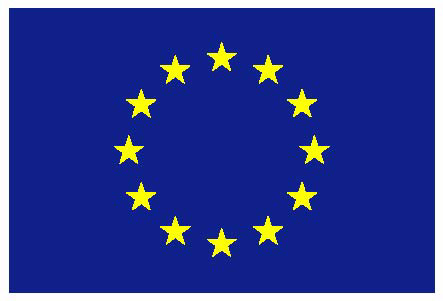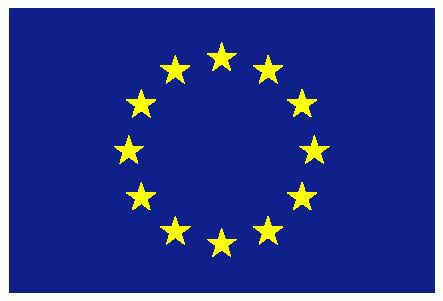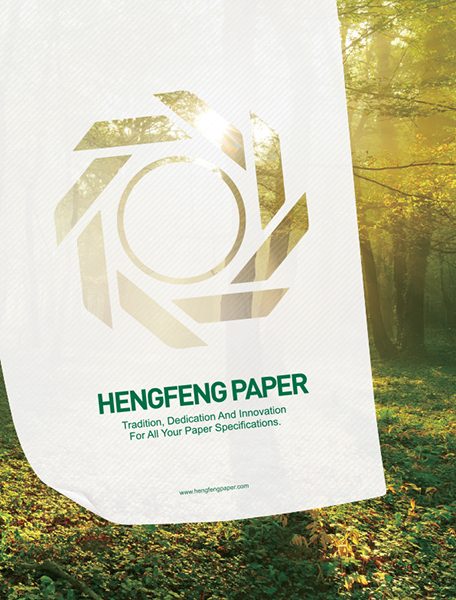
The EU’s upcoming ban on menthol cigarettes serves no purpose.
By George Gay
According to Hannah Devlin, science correspondent of The Guardian, astronomers are to sweep the entire sky for signs of extraterrestrial life for the first time, using 28 giant radio telescopes in an unprecedented hunt for alien civilizations (Feb. 15, 2020, page 3). Toward the end of her piece, Devlin quotes the theoretical physicist Stephen Hawking as having warned against attempting alien contact, suggesting the outcome for humans would not necessarily be good. But she quotes, too, Andrew Siemion, the director of the Berkeley Seti center, as saying that he thought such contact should be attempted, and adding that, “I think without a doubt, we would.”
I think both comments are right up to a point. It is unarguable that the outcome of such contact would not necessarily be good for humans, but history has taught us that, whatever the risk, scientists somewhere would not hold back from making the attempt. Scientific knowledge is no bar to stupidity.
I cannot think in terms of light years, so I find it impossible to imagine making contact with life forms in other galaxies. But I do find it instructive, often in what turns out to be a cautionary way, to consider what extraterrestrials might make of us earthlings if, because of their super-advanced technology, they could view us in real time through a telescope. What might they say to one another, I wonder? “Hey, come and look at these jerks! Their environment is going down the toilet, and what are they doing? They’re worrying about menthol cigarettes! These are supposed to be intelligent beings! Let’s not go there.”
I think that the EU is a great experiment in international cooperation, and I am sad—and if I were younger I would be angry—that the U.K. is leaving it, but ridiculous legislation such as its ban on the production and sale of menthol cigarettes sometimes makes it difficult for people such as me to defend the institution against its detractors. In the great scheme of things, what is the point of banning menthol cigarettes?
Background
Well, before I attempt to answer that question, a couple of notes about what the ban entails and how it came about. The production and sale of menthol cigarettes and cigarettes with capsule-containing filters are to be banned within the EU from May 20, 2020, as is the sale of roll-your-own (RYO) tobaccos sold with mentholated filter tips and/or papers. However, RYO tobacco and “accessories,” such as mentholated filter tips and papers, may all be sold separately.
This regulation has been a long time coming. Its origins go back to a December 2012 proposal by the European Commission to update the EU’s Tobacco Products Directive (TPD) and, a year later, to the EU Parliament’s support for stiffening the rules against tobacco and related products, and, de facto, against committed tobacco users. Early in 2014, the TPD2 was approved by the Parliament and adopted by the EU Council; and it entered into force in May of that year. Aspects of TPD2 were challenged, but it was declared valid by the European Court of Justice in May 2016. Most of the provisions of TPD2, including a ban on the sale of cigarettes with characterizing flavors except menthol, came into effect in May 2017, following a year’s sell-through period. There is no sell-through period in respect of menthol cigarettes.
Now, let’s return to the question above: what is the point of the ban? Well, according to some commentators, it is aimed at reducing smoking; but this must be hokum. Trying to reduce smoking by banning the sale of menthol cigarettes is like trying to reduce alcohol consumption by banning the sale of wine with characterizing flavors other than grape—such as peach wine.
Meanwhile, the EU put forward as part of its justification for the ban what the U.S. Food and Drug Administration (FDA) had concluded in 2013: that menthol cigarettes pose a public health risk above that seen with nonmenthol cigarettes. It also quoted the FDA as saying that menthol use is likely associated with increased smoking initiation by youth and young adults; that menthol in cigarettes is likely associated with greater addiction; and that menthol smokers are less likely to successfully quit smoking than their nonmenthol-smoking counterparts.
Of course, the EU did not point out that the FDA was so concerned about menthol cigarettes in 2013 that it did nothing about them.
Reading the above, I was amused by the way the FDA, this self-styled bastion of rigorous science, apparently throws the word “likely” about as if it were confetti at a wedding. And I found myself not convinced by what seemed to me to be some muddled thinking. If the FDA thinks it’s necessary to say that it’s possible “to successfully [my emphasis] quit smoking,” rather than “to quit smoking,” I take it that it believes also that it is possible to unsuccessfully quit smoking. But whereas you might make an unsuccessful attempt to quit smoking, you cannot unsuccessfully quit smoking—not in this galaxy.
I have trouble also with the concept of “greater addiction.” The word “addiction” has become so malleable in the minds of a lot of people that it is now like mental chewing gum. No more than I can imagine a million light years, can I imagine how degrees of addiction would be measured in a scientifically rigorous manner.
Other risks
The EU aligns with the FDA also on smoking initiation among young people. One of the EU’s original justifications for the ban cited scientific studies that have shown that flavors such as menthol facilitate inhalation and may play a role in smoking initiation. I would have thought scientific studies that purport to show that something may be the case should be binned, but, having said that, I am ready to believe that it is possible that menthol does aid smoking uptake by the young. However, there are laws to prevent the sale of all types of cigarettes to these people, and it seems unbalanced to spoil the enjoyment only of adult smokers of menthol cigarettes because the authorities in the EU’s member states are failing to enforce laws that apply to all cigarettes, especially given the fragility of the scientific studies referred to above.
After all, the EU seems not to take issue with another product that has been linked with cancer and that young people consume—the younger ones at the behest of adults. In fact, according to the headline above another story that appeared in the same newspaper as Devlin’s report, the EU has been under attack for spending more than €200 million ($225.78 million) on the promotion of meat. As writer Daniel Boffey points out in his piece, “Scientists have provided evidence of a link between cancer and diets involving pork, beef and lamb products.”
And how those extraterrestrials must be laughing. Boffey points out too that the livestock sector is responsible for about 14.5 percent of human-derived greenhouse gas emissions. How can it be in the interests of young people for the EU to spend millions of euro promoting something that is linked with cancer and that is helping to flush the environment down the toilet? It is young people, not older adults, who are going to have to settle, at best, for a life squatting on the toilet’s event horizon.
But it isn’t really about the young, is it? How can we have the temerity to maintain, against all the evidence, that we want to protect young people? And I’m not talking only of governments here, I’m calling out ordinary people. One example. In my country, the U.K., voters have recently given a huge parliamentary majority to a party that, during the past 10 years, has overseen a big increase in child poverty and that will almost certainly cause more such poverty during the next five years—a party led by a person who many commentators say is unable or unwilling to account for how many children he has. Elsewhere, the abuse of children in the U.K. is accepted to the point that those in authority often look the other way, and it is even “celebrated” in one of our poetic forms, the limerick. I don’t know what became of the young chaplain from Kings, but some of the leaders of his church sit, by right, in our second chamber, the House of Lords; I presume, to provide us with spiritual guidance. This is way beyond irony.
I would not argue that the EU should concentrate on nothing but the environment. But it should certainly take off the table any nonessentials and put all available hands to the environment pump. The climate crisis is not a future event. It is already upon us.
By comparison, the menthol-cigarette ban is pure faff. I presume that it has been devised by people who haven’t moved against gooseberry and elderflower wine because most of them consume alcohol. They want to put a stop to a pleasure that they cannot understand. You can see this in the rules about roll-your-own tobacco. Allowing the sale of menthol papers and tips as separate items but not in conjunction with tobacco seems to be aimed at inconveniencing smokers. The EU’s bureaucrats should be put to work on critical projects. Announcing the European Green Deal is all well and good but, from what I read, making it work is going to be a huge challenge. The carbon scammers will already be jostling for position.
Accommodation
Inevitably, products have been appearing on the market aimed at helping menthol-cigarette smokers through the difficult time being ushered in by the May 20 ban. One, a menthol-infusion card that smokers can slip into a pack of regular cigarettes or fine-cut, is particularly clever, mimicking as it does the RYO accessory exemption, and thereby presumably staying well within the spirit and the letter of the law. Ironically, menthol smokers might end up preferring this system because they can tailor their preferred menthol level by adjusting the length of time they leave the cards in the pack. And of course, menthol smokers can help themselves after May 20 by putting regular cigarettes, together with some menthol crystals bought from their local pharmacies, into a sealed jar and leaving them there for a time based on their preferred menthol strength.
Despite the fact that I see the menthol cigarette ban as being unnecessary and unfair, discriminating against and collectively punishing a minority group of smokers, you have to accept that what is done is done and try to make the most of it. I suppose you have to hope that those menthol-cigarette smokers in the EU who do not want to take advantage of the new DIY methods react by quitting or switching to menthol vaping.
But it’s those extraterrestrials who will have the last laugh. They will hardly be able to contain themselves as more EU energy is expended on TPD3 while the environment tips over the event horizon to the strains of “Goodnight Irene.”
















